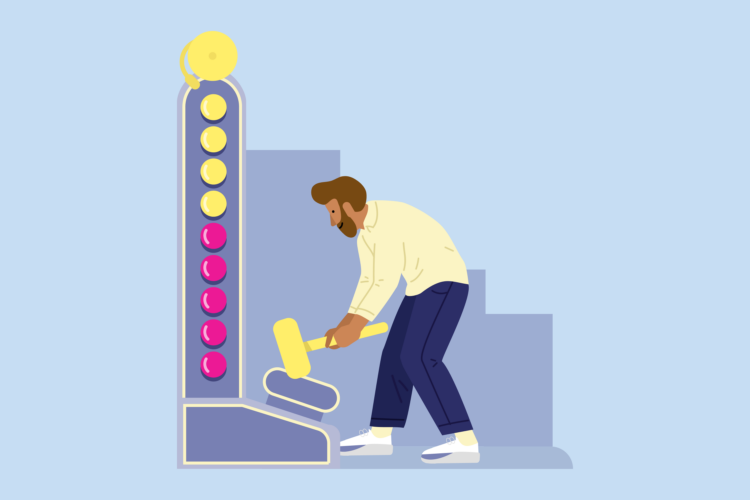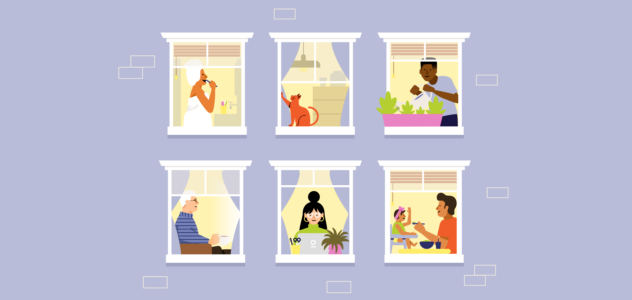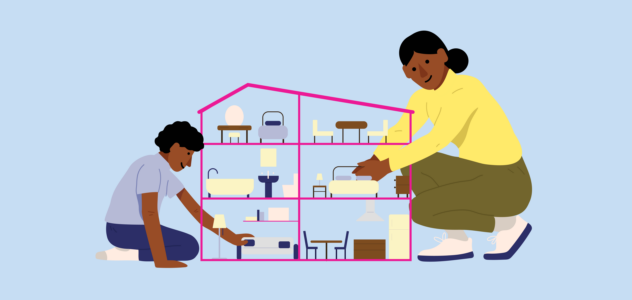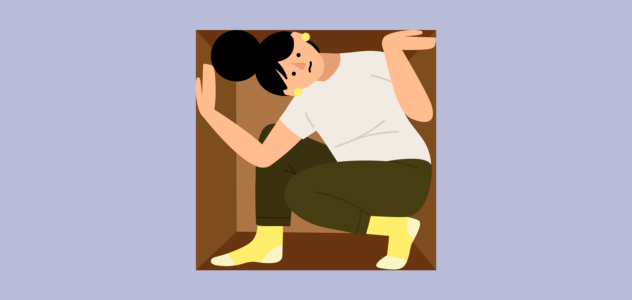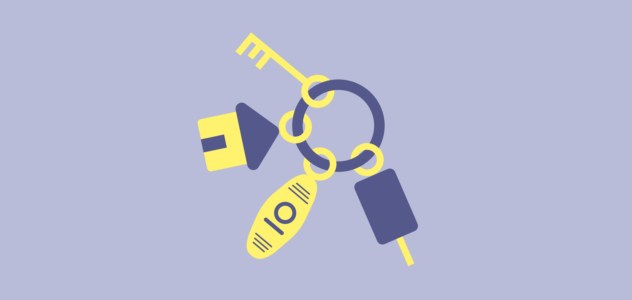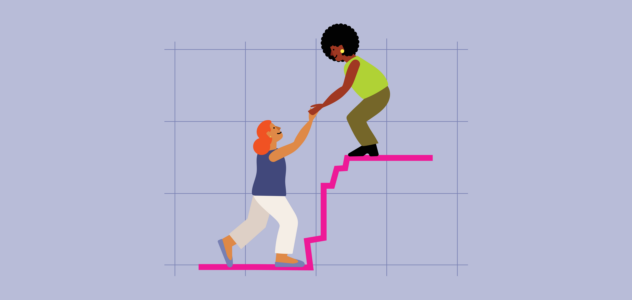So you’re a homeowner, happily (read: begrudgingly) chipping away at your mortgage.
And then BAM. The Reserve Bank of Australia (RBA) announces an increase in cash rate, which means home loan interest rates are on the move. Up.
“Become a homeowner they said… it’ll be fun they said…”
So if you’re feeling a little uneasy about the future, you’re not alone.
The good news is, it’s a great opportunity to check back in with your home loan, explore your options and set yourself up for what’s to come.
So let’s explore…
- What causes interest rates to rise?
- What do rising interest rates *actually* mean for first homeowners?
- How to prepare for rising interest rates
- Your common questions about rising interest rates, answered
What causes interest rates to rise?
Despite how it may seem, interest rates aren’t a random number plucked out of the sky by the RBA.
And to understand why interest rates rise — and what determines them in the first place — let’s define the RBA and cash rate.
Firstly, the Reserve Bank of Australia (RBA) is Australia’s central bank. The RBA is the primary decision-maker when it comes to Australia’s monetary policy. It plays a big role in the stability of our currency, employment rates and economic prosperity. So it’s kind of essential.
Secondly, the RBA sets a thing called the cash rate, which in simple terms, is the benchmark interest rate used for loans between the banks.
And here’s the clincher: the interest rate on your home loan isn’t set by the RBA. It’s set by *your* lender.
Buuuut in saying that, a change in the RBA cash rate can often trickle down to mortgage holders. Yep, it’s expected (historically speaking) to see banks and lenders change their interest rates after RBA cash rate announcements.
But it’s not just the RBA cash rate that impacts interest rates. They’re impacted by things like supply, demand, inflation and even the government.
Of that list, inflation’s a big factor — AKA the increasing prices of things over time (remember when a latte cost $3.50?)
Because the thing is, when inflation moves too quickly it can devalue our currency. So in an attempt to influence that, increasing the cost of borrowing can lead to a greater incentive to save and means less money to spend on things (like lattes).
Long story short: there’s often a method to the madness of rising interest rates.
What do rising interest rates mean for homeowners?
We’re not going to tiptoe around it: rising interest rates often mean higher repayments for homeowners (on variable rates).
For this reason, your lender would have incorporated a serviceability buffer before approving your loan. Kinda like an extra layer of safety, they would have looked at your situation and asked “if interest rates were to rise, would they still be able to pay off this loan?”
So, the good news is most Aussie homeowners shouldn’t be stretched so thin they can’t afford increased repayments. It might just require a little more budgeting (ahem, less UberEats *sigh*).
Because while the serviceability buffer is in place to minimise risk for the lender, it’s ultimately up to you to factor in your repayments to your household budget.
Let’s look at a quick example.
Jane is an owner-occupier of a 30-year loan of $500,00 with a 2.47% interest rate. If there was a 0.25% per annum increase in interest rates, that would equate to $792 increase in repayments per year (or if we break it down, $66 extra per month).
That’s $66 extra she has to account for in her monthly budget. Sure, it might take some adjusting, but she knows it’s doable.
How can you prepare for rising interest rates?
Know your interest rate
When the RBA announces a cash rate increase, we can often expect flow-on effects for mortgage holders. Cue: the time to keep a verrrry close eye on things.
Because the thing is, lenders won’t necessarily tell you when your personal interest rate is changing. They sometimes keep this as a surprise (but not the good kind).
So it’s your job to know what interest rate you’re on and check for any upcoming changes.
Explore refinancing options
Another way to prepare for rising interest rates is to recognise that every lender behaves differently (check out our interest rate tracker). Yep, they don’t necessarily increase their rates by the same amount, on the same date.
The good news? This could be the perfect time to explore other options and secure a better deal (AKA refinance). For those that may be new to this stuff, refinancing is replacing your current mortgage with a new one in a way that’s favourable to YOU.
What’s more, lenders love to get new customers through the door. Like, love it. So much so, they often reserve better rates for new customers (yep, even better than their long-standing customers). Some lenders will even *throw* money at you for moving to them (also known as a cashback offer).
Taking all this into account, simply fixing your rate with your current lender may not necessarily be your best option. It could be the ideal time to weigh up refinancing and explore your options with help from a home loan expert.
Budget better
Lastly (and you may not LOVE this one) but rising interest rates mean it may be time to budget a little differently.
Whether it’s reducing your holiday budget or cutting back on Afterpay, make sure your household budget accommodates these increasing rates for months and years to come.
Got questions? We’ve got answers
Will this affect fixed rate home loans?
If you’re already on a fully fixed-rate, no. In saying that, once your fixed rate expires you should be prepared to adapt to your new interest rate (and ideally chat to a home loan expert before your fixed rate expires). For new loans, it’s best to keep an eye on the fixed rates you’re considering, as they can also move about during a period when interest rates are changing.
Will my lender tell me what my rate is moving to?
Not necessarily (*rolls eyes*). Lenders don’t always give you a personal update when your rate is moving, so it’s on you to know what rate you’re on and keep an eye on it.
Will all lenders increase rates by the same amount?
It’s not easy to predict. But historically, lenders have behaved differently (it’s not always the same as the RBA). To keep an eye on what’s currently happening with interest rates, check out our interest rate tracker. We continue to update this list.
Have I missed out on securing a good rate?
Thankfully, there are still some good deals available. Now is the time to look at what rate you’re on and review your options with a trusted expert (we’ve got you 👊).
Will interest rates continue to rise?
Unfortunately, there’s no clear answer. But many economists have alerted homeowners to prepare for further interest rate hikes over the next few years.
What if I can’t repay my home loan?
We hope you never have to face this situation. But if you’ve done everything you can to prepare and you can’t repay your home loan, there are a variety of pathways from here. This includes hardship options, taking a repayment break, and in certain cases, insurance options. If you’re not sure where to begin, your home loan expert can walk you through it.
How soon after interest rate hikes are announced do they kick in?
When banks and lenders announce their rate rises they’ll include an effective date. This is when your home loan will begin to be calculated at the new rate. In saying that, your repayments may not change immediately. They may already be above the minimum, or your repayments may only change after a certain time period (for example, at an annual loan review date).
Find out *exactly* what rising interest rates mean for *your* situation
Rising interest rates often mean higher repayments for homeowners. But exactly what that looks like is unique to YOUR situation.
So before you panic or hastily fix your interest rate with your current lender, it’s an ideal time to chat to a home loan expert (AKA broker) and see how rate rises could impact you and explore your options to save.
Ready to explore your options? Chat with a Finspo home loan expert today.
